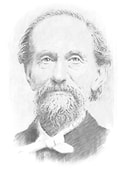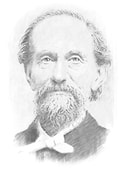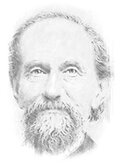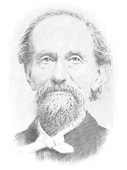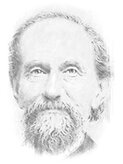andrew murray
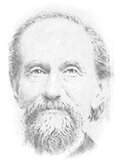
Andrew Murray (9 May 1828 – 18 January 1917) was born in Graaff Reinet, South Africa. Murray had an incredible Christian heritage growing up. His father was a Dutch Reformed minister who weekly read revival accounts to his family, and prayed regularly for revival to come to South Africa. Missionaries traveled through constantly, including David Livingston.In 1838, when Murray was ten, he and his brother John went to study in Scotland. They went to train with their uncle, the Rev. John Murray. In the spring of 1840 the revivalist William C. Burns came and spoke in Aberdeen, Scotland. Burns made a deep impression Andrew. He was staying at his uncle's house and they spent long evenings sharing about the work of God. Burns had been instrumental in the great Kilsyth Revival of 1839. His heart was constantly broken over the lost, and he would weep and pray for hours for their salvation. Andrew would listen, with awe, as Burns would preach, and he saw a model of what he would like to become. Andrew and John attended Marischal College and graduated in 1844.
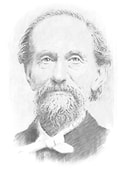 Andrew Murray
Andrew Murray
“A dead Christ I must do everything for; a living Christ does everything for me.”
― Andrew Murray, Jesus Himself
“Humility is simply the disposition which prepares the soul for living on trust.”
― Andrew Murray, Humility: The Journey Toward Holiness
“Humiliation is the only ladder to honoring God's Kingdom.”
― Andrew Murray, Humility: The Journey Toward Holiness
“Humility is, "nothing but that simple consent of the creature to let God be all, in virtue of which it surrenders itself to His working alone.”
― Andrew Murray
― Andrew Murray, Jesus Himself
“Humility is simply the disposition which prepares the soul for living on trust.”
― Andrew Murray, Humility: The Journey Toward Holiness
“Humiliation is the only ladder to honoring God's Kingdom.”
― Andrew Murray, Humility: The Journey Toward Holiness
“Humility is, "nothing but that simple consent of the creature to let God be all, in virtue of which it surrenders itself to His working alone.”
― Andrew Murray
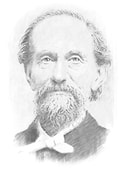 Andrew Murray
Andrew Murray
“Jesus never taught His disciples how to preach, only how to pray. He did not speak much of what was needed to preach well, but much of praying well. To know how to speak to God is more than knowing how to speak to man. Not power with men, but power with God is the first thing. Jesus loves to teach us how to pray.”
― Andrew Murray, Lord, Teach Us To Pray
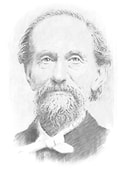 Andrew Murray
Andrew Murray
“Ask and you shall receive; everyone that asks receives. This is the fixed eternal law of the kingdom: If you ask and receive not, it must be because there is something amiss or wanting in the prayer. Hold on; let the Word and Spirit teach you to prat aright, but do not let go the confidence he seeks to waken: Everyone who asks receives....Let every learner in the school of Christ therefore take the Master's word in all simplicity....Let us beware of weakening the word with our human wisdom.”
― Andrew Murray
― Andrew Murray
 Andrew Murray
Andrew Murray
“Oh, that you would come and begin simply to listen to His Word and to ask only the one question: Does He really mean that I should abide in Him? The answer His Word gives is so simple and so sure: By His almighty grace you now are in Him; that same almighty grace will indeed enable you to abide in Him. By faith you became partakers of the initial grace; by that same faith you can enjoy the continuous grace of abiding in Him.”
― Andrew Murray, Abide in Christ: The Joy of Being in God's Presence
― Andrew Murray, Abide in Christ: The Joy of Being in God's Presence
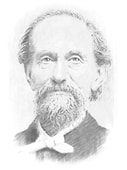 Andrew Murray
Andrew Murray
“The Christian often tries to forget his weakness; God wants us to remember it, to feel it deeply. The Christian wants to conquer his weakness and to be freed from it; God wants us to rest and even rejoice in it. The Christian mourns over his weakness; Christ teaches His servant to say, 'I take pleasure in infirmities. Most gladly ...will I...glory in my infirmities' (2 Cor. 12:9)' The Christian thinks his weaknesses are his greatest hindrance in the life and service of God; God tells us that it is the secret of strength and success. It is our weakness, heartily accepted and continually realized, that gives our claim and access to the strength of Him who has said, 'My strength is made perfect in weakness”
― Andrew Murray, Abide in Christ: The Joy of Being in God's Presence
― Andrew Murray, Abide in Christ: The Joy of Being in God's Presence
 Andrew Murray
Andrew Murray
“Humility is the only soil in which the graces root; the lack of humility is the sufficient explanation of every defect and failure. Humility is not so much a grace or virtue along with others; it is the root of all, because it alone takes the right attitude before God, and allows Him as God to do all.”
― Andrew Murray, Humility: The Journey Toward Holiness
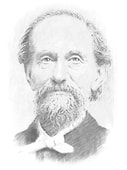 Andrew Murray
Andrew Murray
The likeness to Christ consists chiefly in two things--the likeness of His death and resurrection. The death of Christ was the consummation of His humility and obedience, the entire giving up of His life to God. In Him we are dead to sin. As we sink down in humility and dependence and entire surrender to God, the power of His death works in us, and we are made comfortable in His death. -Andrew Murray
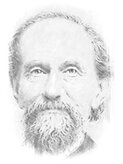 Andrew Murray Files
Andrew Murray Files
“Humility is perfect quietness of heart. It is to expect nothing, to wonder at nothing that is done to me, to feel nothing done against me. It is to be at rest when nobody praises me, and when I am blamed or despised. It is to have a blessed home in the Lord, where I can go in and shut the door, and kneel to my Father in secret, and am at peace as in a deep sea of calmness, when all around and above is trouble.” ― Andrew Murray
“Humility is perfect quietness of heart. It is to expect nothing, to wonder at nothing that is done to me, to feel nothing done against me. It is to be at rest when nobody praises me, and when I am blamed or despised. It is to have a blessed home in the Lord, where I can go in and shut the door, and kneel to my Father in secret, and am at peace as in a deep sea of calmness, when all around and above is trouble.” ― Andrew Murray

